Survivors Sidelined: How Illinois’ sexual assault survivor law allows hospitals to deny care
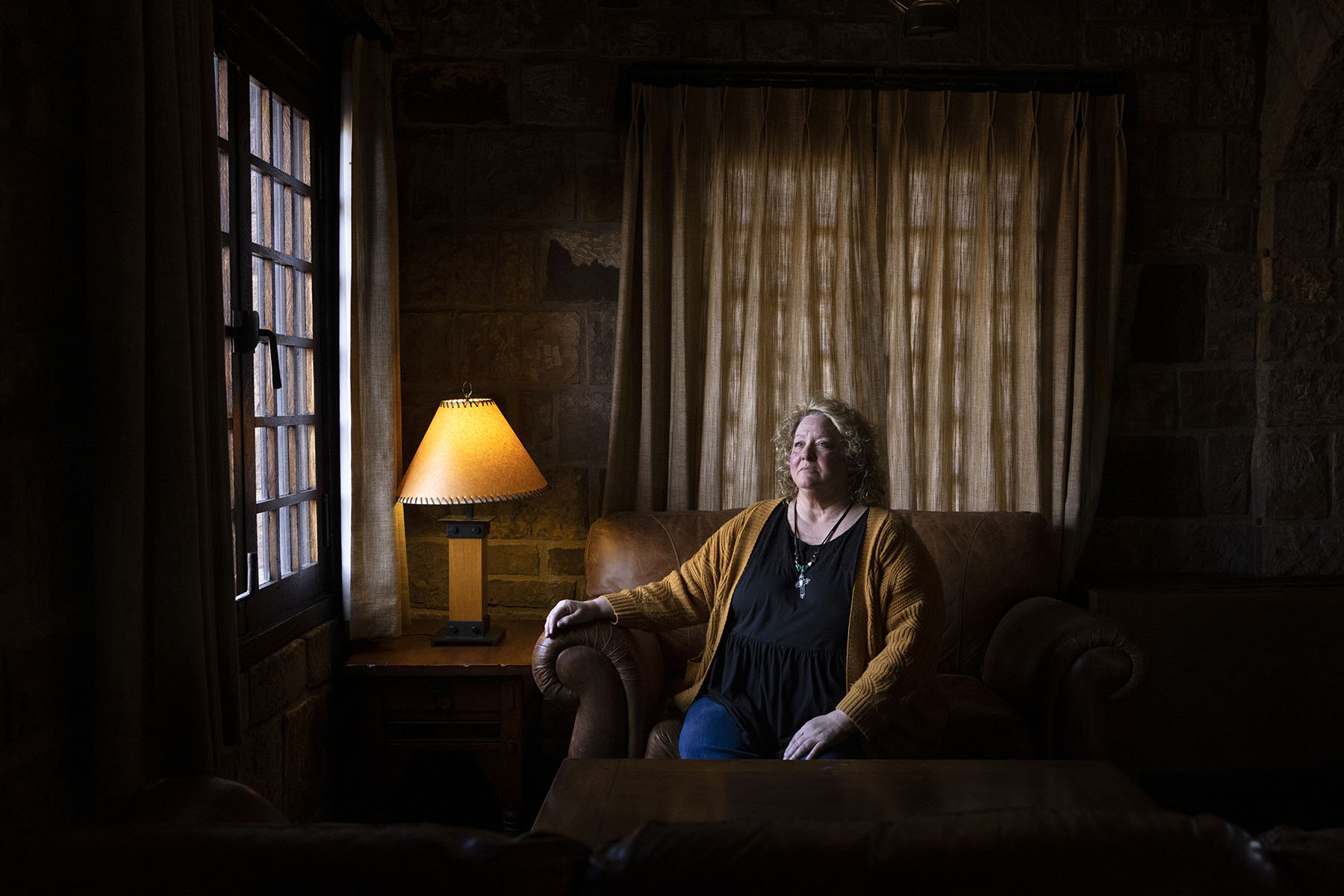
In September 2021, a 4-year-old girl’s babysitter caught her touching another child inappropriately.
“I asked her why she was doing that,” the babysitter texted the girl’s mother, “and she told me because someone does it to her.”
Who does it? the babysitter asked the girl.
“Omfg,” the babysitter responded to the mother. “You’re not going to be happy can you call me.”
She said her daddy does it, the babysitter told the mother.
The girl’s mother and grandmother brought the child to their local emergency room in Jacksonville, Illinois. (The girl and her family are not being identified because she is a victim of sexual assault.)
At Jacksonville Memorial Hospital, a doctor noted trauma to her vaginal area, records show. “My daddy touches me there,” she said during the exam, according to police records and an interview with the girl’s grandmother.
A state law enacted 48 years ago required the hospital to offer a forensic exam, often called a rape kit. A revision passed in 2018 also required the hospital to notify a sexual assault advocate on the girl’s behalf.
But neither of those things happened, state inspectors found when they arrived two weeks later in response to a complaint.
Instead, the doctor sent the girl home.
When faced with the inspectors’ findings, hospital leaders could have apologized and redoubled their efforts to treat sexual assault victims as the law intended.
Instead, they shut down services for sexual assault survivors. Today the hospital sends these patients 40 miles away to another hospital. A spokeswoman for Jacksonville Memorial Hospital declined to comment.
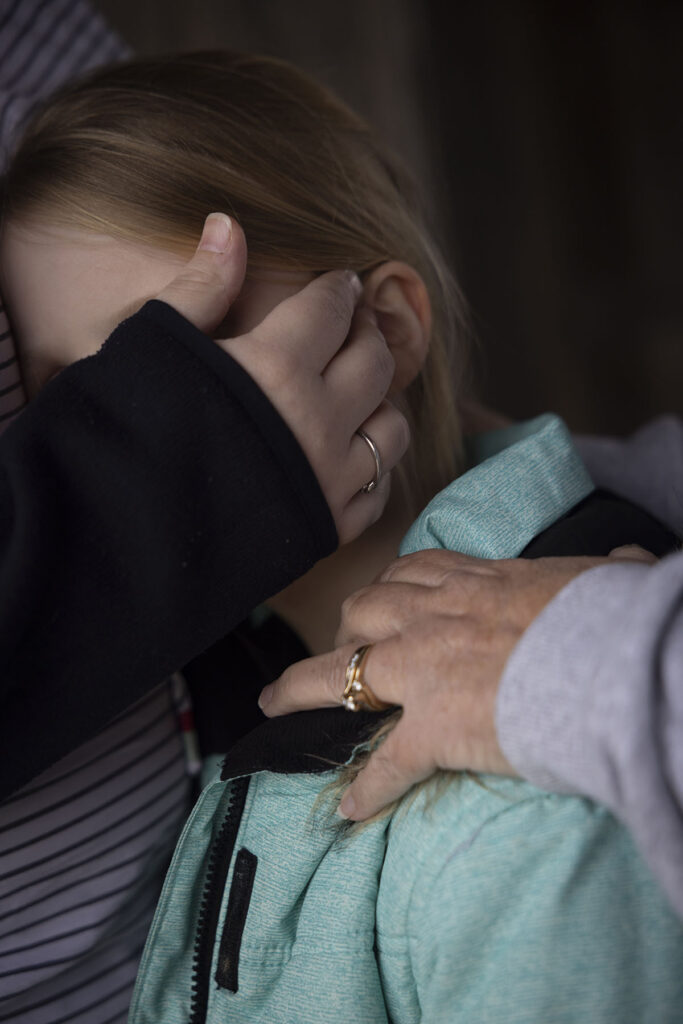
An investigation by APM Reports shows that what happened at the hospital in Jacksonville is not an isolated incident. Roughly two dozen hospitals have violated Illinois’ landmark sexual assault survivor law with few consequences.
Lawmakers also added a critical exception that undercut the premise of the law: Hospitals that found the requirements too onerous could send patients elsewhere.
In the 17 years since lawmakers created that exception, the number of hospitals transferring patients instead of treating them has more than tripled.
Meanwhile, many hospitals that do treat sexual assault victims have failed to provide critical services.
A review of publicly available inspection reports from 2018 through 2023 from the state Department of Public Health revealed 23 hospitals — from downtown Chicago to rural Centralia — violated state laws intended to protect sexual assault survivors. More than 200 patients were referenced in the reports. While some of these laws are relatively new, others have been on the books for decades.
State investigators have found:
- Four hospitals failed or refused to offer sexual assault kits.
- Nine hospitals failed to contact a rape crisis center advocate.
- Three hospitals delayed treatment.
- Nine hospitals failed to take photographs of injuries.
- Four hospitals failed to notify child or adult protective services.
- Eight hospitals failed to provide follow-up care instructions.
- Six hospitals billed victims for the cost of their exam, which has been illegal in the state for 48 years.
APM Reports found no evidence that any hospital has been fined since the law’s creation. While Illinois law allows the state to issue monetary penalties, it fails to specify who must do so in nearly all cases.
“I’m so revolted by this,” said state Rep. Jehan Gordon-Booth, a Democrat from Peoria who is the “speaker pro tempore and chief budgeteer in the House. “These are individuals who have been victimized, oftentimes by a trusted person in their lives, and to then be re-victimized again — it’s just unconscionable.”
Advocates say the number of unreported violations is likely much higher. State regulators only inspect hospitals every three years or in response to a serious complaint.
“We triage and prioritize the investigation of complaints based on the nature, scope and severity of the complaint allegations,” said Michael Claffey, spokesman for the Illinois Department of Public Health. “Those that require an urgent response are handled as quickly as possible.”
‘There should have been more done right then and there’
When hospitals fail to provide sexual assault victims immediate access to forensic exams, they may help sexual offenders escape punishment.
Experts say evidence collection should happen within seven days, but earlier is better. Each time the victim washes, urinates or moisturizes, the amount of DNA — which can implicate or exonerate suspects — diminishes.
But the distress caused by an assault can lead to delays. The 4-year-old girl’s mother said she was in shock and had been working double shifts several days in a row when she learned about her daughter’s assault. By the time the girl’s grandmother insisted on going to a hospital, it had been four days since the girl last saw her father.
Time was of the essence. But during the girl’s hospital visit, the grandmother wondered why there wasn’t a rape kit.
“I know what the rape kit all entails, and there wasn’t even a mention of that,” the grandmother said. “Honestly there should have been more done right then and there.”
The girl eventually received a forensic exam at a hospital an hour away in Springfield. By then, six days had passed since the girl had visited her father.
The father, who was never charged with a crime, declined to comment through his attorney. He told Illinois State Police investigators his daughter “has an overactive imagination,” records show.

Months later, the kit came back negative for any male DNA, according to a state crime lab report. That stood out to Cass County State’s Attorney Craig Miller, who declined to prosecute the case in 2022. He didn’t elaborate on other factors that he said went into his decision.
“I don’t have a crystal ball, but if she had not been denied care that day and they found DNA, I think that changes the whole outcome of the case,” Miller said after reviewing the case file.
The state Department of Public Health investigated Jacksonville Memorial after it received a complaint about the girl’s care. Inspectors found four violations related to the incident: failing to contact a rape crisis advocate; failing to offer a medical forensic examination; failing to refer her to a provider with an expertise in pediatric sexual assault for follow-up care; and failing to obtain photographic evidence of her injuries.
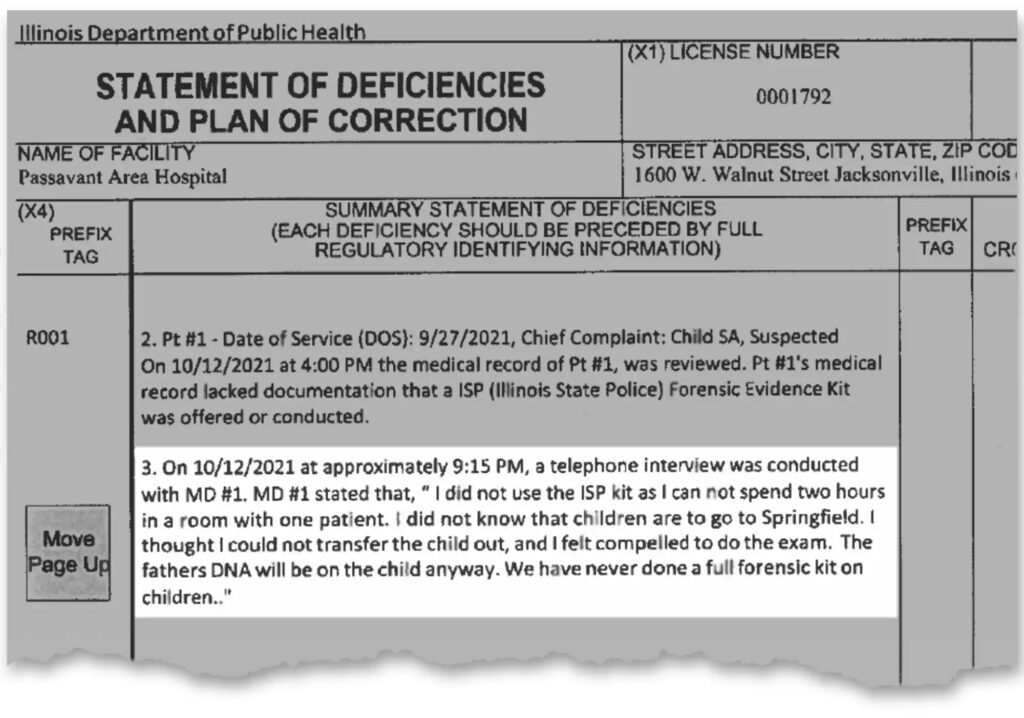
There was no punishment. No agency fined the hospital for the violations, and the state medical board didn’t discipline the doctor.
As for why the doctor did not offer her an exam, “I cannot spend two hours in a room with one patient,” he told state investigators. The doctor did not respond to email messages for this story.
A year after the visit, the girl’s parents’ divorce was finalized. The girl’s father, who was never charged, shares custody of his daughter.
While some of the state’s investigative reports detailed relatively minor violations like failing to offer the survivor a shower, others outlined alarming decisions by medical professionals.
Inspectors found nurses at Advocate South Suburban Hospital in Hazel Crest threw away a woman’s clothes and the entire contents of her rape kit in 2021 after she left without signing one of many consent forms. Then, the hospital violated state law again — by sending her multiple bills related to her care, a complaint filed with the state attorney general’s office states.
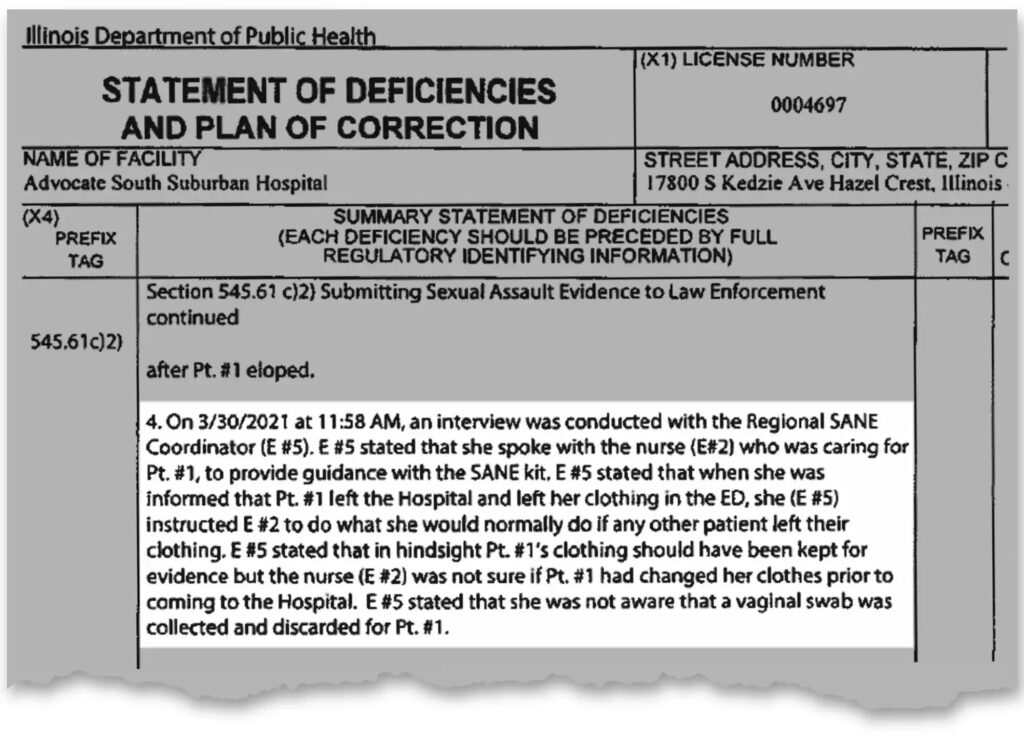
“Instead of following up with the patient to get any part of the consent form signed, the hospital destroyed the kit,” an Illinois State Police forensic scientist wrote to the attorney general’s office.
“The case is still being investigated, with the survivor’s participation, and unfortunately the best potential evidence has been destroyed.”
The hospital’s forensic nurse coordinator at the time admitted to a state investigator that she told the nurse to throw the kit and clothing away. Through a spokesperson, the hospital declined to comment on this case, citing patient privacy. The hospital has since expanded the number of forensic nurses and increased training for clinicians to continue to treat sexual assault patients, the spokesperson said.
Julie Chor, a medical ethicist and associate professor of obstetrics and gynecology at the University of Chicago, said she was shocked by APM Reports’ investigation.
“It’s really our fundamental duty to take care of these individuals when they come to us seeking help. It just seems like this is such a systems failure,” Chor said. “It’s just so disheartening.”
‘An empty threat’
Illinois leads the nation in what it requires of hospitals after a sexual assault victim seeks help.
In most states, no law requires hospitals to have trained staff available for sexual assault exams. Even Virginia and West Virginia — which followed Illinois’ lead requiring forensic exams — do not protect patients to the same degree.
But the Illinois law is “an empty threat” — and hospitals know it, said Jaclyn Rodriguez, the former state sexual assault nurse examiner coordinator with the state attorney general’s office.
For 48 years, the law has stated that any hospital violating any provision “shall be guilty of a petty offense for each violation, and any fine imposed shall be paid” to the municipality where the hospital is located. But officials from several state entities and local governments — including the state Department of Public Health, the attorney general’s office, the state Legislature’s Joint Committee on Administrative Rules, the city of Chicago and the Cook County State’s Attorney’s Office — could not agree who is responsible for enforcing the law.
None were aware of any fines that had been collected due to hospitals’ violations of the sexual assault law.
Revisions to the law allowed the Illinois Department of Health to fine hospitals if they don’t respond to investigations or if they fail to submit plans to treat or transfer patients. A department spokesman said no fines were issued.
State lawmakers also gave the Illinois Attorney General’s office explicit enforcement authority over one small part of the law.
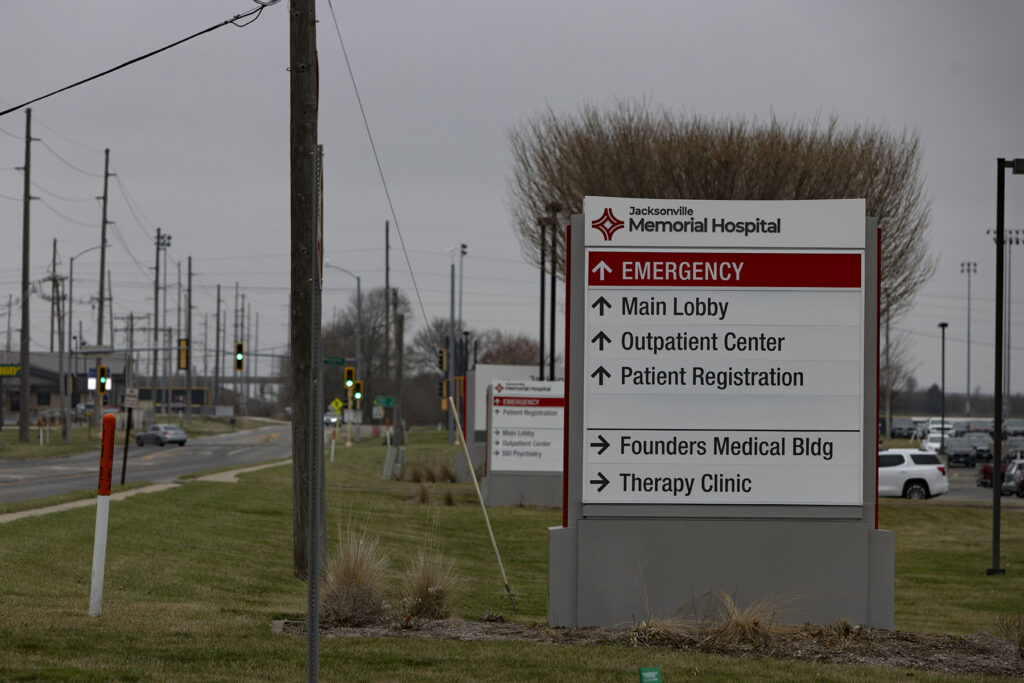
When medical providers bill sexual assault victims for care or send them to collections — a longstanding violation of Illinois law — that office can collect a fine of $500 per day.
Records obtained through a public records request show the attorney general’s office could have collected $1.4 million in fines in nearly eight years from hospitals, physician groups and testing laboratories that sent survivors to collections. But the office has not issued fines for these violations or any others, records show.
In response to this reporting, Annie Thompson, a press secretary for the attorney general’s office, said the law doesn’t require the office to issue fines. Attorney General Kwame Raoul “believes working with hospitals” yields better outcomes, she said.
“To date, we have received no evidence to indicate hospitals intentionally or maliciously refer survivors to collections,” the statement said.
Through mid-2023, people contacted the attorney general’s office asking for help with 28 bills related to sexual assault care that were sent to collections — which is against the law. Of those, 14 were in collections for longer than 100 days and one was in collections for 399 days, records from the office indicate.
‘The man who raped me is going to get away with it’
Hospitals need not violate Illinois’ landmark law to avoid providing care for sexual assault victims.
In 1976, when Illinois lawmakers first passed the groundbreaking law guaranteeing care for victims of sexual assault, they required all hospitals to meet the same strict standards. That changed with a fateful revision in 2007.
The update included a provision which allowed hospitals to decide whether to treat or transfer patients. Before the bill passed unanimously in both houses, lawmakers noted it was the product of collaboration among advocates, state officials, and lobbyists for the hospital industry, legislative transcripts show.
Since then, most of the state’s hospitals, including Jacksonville, can choose to transfer sexual assault patients instead of treating them — so long as they get the state health department’s approval.
As more hospitals choose to transfer patients, some victims are forgoing care altogether.
Cheryl Thompson, 62, was celebrating the new year at a bar with someone she considered a friend, when she suddenly blacked out after a drink at the bar. She awoke hours later in near-freezing weather, on her back in her driveway. Later, she found pebbles, dried leaves and dirt inside her pants.
At Union County Hospital in Anna, Thompson told a doctor she thought she had been raped.
But the doctor told her “no one would have been able to force” a woman her size to have sex unwillingly, and that “no one would have put drugs in her drink in Union County,” according to Thompson’s statement to police. He repeatedly asked her what she wanted him to do, Thompson said in a complaint to the medical board.
“I would answer him, ‘I want you to look at me or test me or whatever.’ And he told me, ‘We don’t do rape kits here — no one in our area does them. You have to go to Mount Vernon,’” she said in an interview.
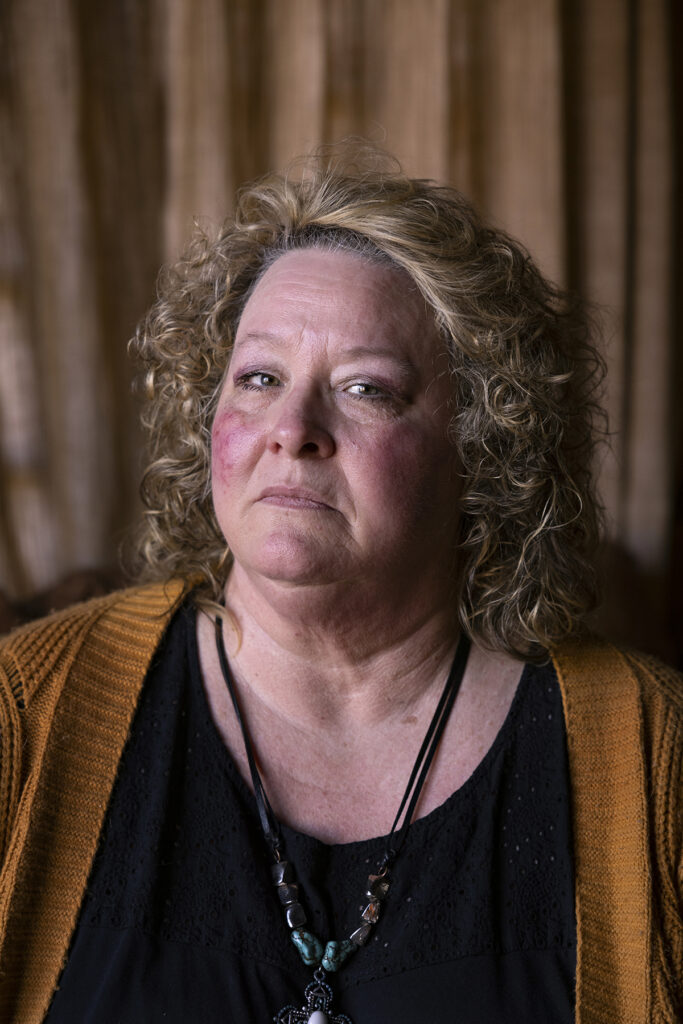
Mount Vernon is an 80-minute drive from the hospital in Anna — the longest transfer in the entire state.
When a hospital opts not to treat victims, it must direct the patient to a hospital with which it has an agreement. Some one-way trips are longer than an hour. Several hospitals around the state, including the one in Anna, send patients dozens of miles farther than the closest hospital that will treat a sexual assault victim.
Fearful doctors in Mount Vernon would treat her with similar skepticism, Thompson decided not to go.
Although Union County Hospital’s transfer agreement is with a hospital in Mount Vernon, the nearest treatment hospital was actually 25 minutes away in Carbondale, a distance Thompson said she would have been willing to drive.
By the time Thompson learned about the hospital in Carbondale, nine days had passed since the assault.
A forensic nurse there found bruising on her inner thighs and bloody scrapes on her knee and elbow. She also helped her file a police report.
“The man who raped me is going to get away with it because I couldn’t get my rape kit done in enough time to get the proof that I needed,” she said through angry tears in an interview with APM Reports.
A spokeswoman for Deaconess Health, which owns Union County Hospital, defended its actions, saying not all treatment hospitals in southern Illinois accept transfers from other hospitals.
“Some are limiting [Sexual Assault Nurse Examiner] care to only those patients who first come to their facility,” the spokeswoman wrote, noting that Union County Hospital signed its transfer agreement with the hospital in Mount Vernon before the surrounding hospitals offered those services.
State law prohibits the Department of Public Health from approving a hospital’s transfer plan if it would “unduly burden the sexual assault survivor.”
But when asked why the department approved the transfer plan that sends rape victims more than 70 miles away even though other treatment hospitals are closer, Claffey, with the state Department of Public Health, said, “We are not in a position to comment on decisions that hospitals make.”
Later, he added that the department does have the authority to deny a transfer plan that places an undue burden on survivors, but said lawmakers would need to define “undue burden” more specifically for the department to deny transfer plans based on distance.
State Rep. Kelly Cassidy said long transfer distances are a statewide problem.
“It doesn’t look like hospitals are being held accountable,” Cassidy, a Democrat, said. “We need to have a very intentional approach to making sure we fix this.”
Rodriguez, the former state sexual assault nurse examiner coordinator, said some in her field prefer an alternative to transferring patients.
“Your option should be for a practitioner to go to you,” she said. “The burden shouldn’t be on the survivor like it is now. It should be on the hospital and healthcare provider who didn’t just go through trauma.”
‘They’re going to have to answer for this’
In 2018, lawmakers set out to strengthen the Illinois sexual assault survivor law once again.
The bill required hospitals to train emergency room workers in trauma-informed care and ensure every sexual assault victim has access to a rape crisis advocate. It also required treatment hospitals to provide forensic services within 90 minutes of a victim’s arrival.
That year, none of the state’s nearly 200 hospitals had forensic nurses available around the clock, according to the state attorney general’s office.
“Illinois wasn’t in the place we wanted it to be in terms of responding to sexual assault survivors,” said Carrie Ward, CEO of Illinois Coalition Against Sexual Assault, a state nonprofit supporting more than 30 regional rape crisis centers.
In some ways, lawmakers’ efforts were successful. Since the law passed, the number of nurses certified as sexual assault examiners has skyrocketed, from about 200 in 2019 to nearly 500. The number of forensic nurses specializing in pediatric cases also more than doubled, from 33 in 2019 to 68 in 2023, records say.
But in other ways the revisions are failing victims of sexual assault.
If hospitals couldn’t or didn’t want to comply with the new requirements, they had an out. The 2007 exception to the law meant hospitals that didn’t want to meet the new requirements could simply transfer patients to another hospital.
In an emailed statement, Paris Ervin, a spokeswoman for the Illinois Health and Hospital Association, said the 2018 law was to blame for the increase in transfer hospitals.
A nationwide nursing shortage and limited access to required training made the revision a foreseeable failure, she said, particularly for smaller and more rural hospitals.
“Hospitals have been forced to transfer survivors from their communities to treatment hospitals in different communities, in order to maintain compliance with the law,” Ervin said.
A proposed rule change might hold transfer hospitals to a higher standard.

Six years ago, lawmakers tasked a group of nurses, hospital representatives and victim advocates with recommending changes to how hospitals treat patients after a sexual assault. That group has proposed new rules requiring transfer hospitals to contact a rape crisis advocate, treat patients for sexually transmitted infections, screen for drug-facilitated rape and train certain emergency room staff.
The rules have yet to be approved.
At the Statehouse, lawmakers say they’re paying attention to shortcomings in the law.
“To hear that rape victims are being turned away,” Rep. Gordon-Booth said, will be of importance “to every member of the Illinois General Assembly.”
As speaker pro tempore, Gordon-Booth is in charge of the budget at the Statehouse. She noted the state “funds hospitals significantly” with billions in taxpayer money flowing to Illinois hospitals every year.
“Here’s the reality: They’re going to have to answer for this,” Gordon-Booth said. “There’s no way that these entities are going to be able to come back to the Legislature — as they do every year — and not be accountable.”
This story was produced by APM Reports as part of the Public Media Accountability Initiative and was co-published with The 19th News. APM Reports granted Muddy River News the rights to publish this story.
Miss Clipping Out Stories to Save for Later?
Click the Purchase Story button below to order a print of this story. We will print it for you on matte photo paper to keep forever.

